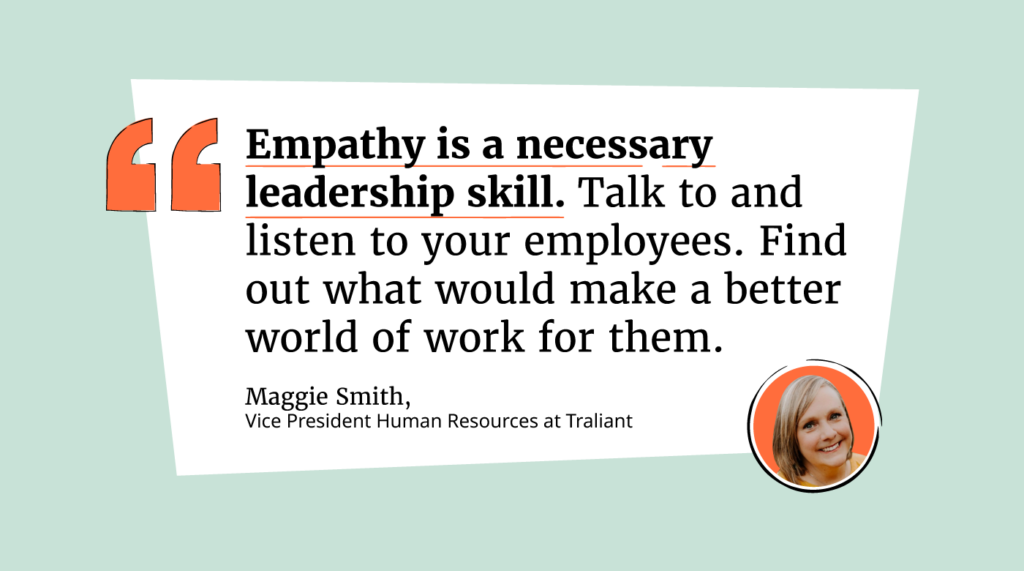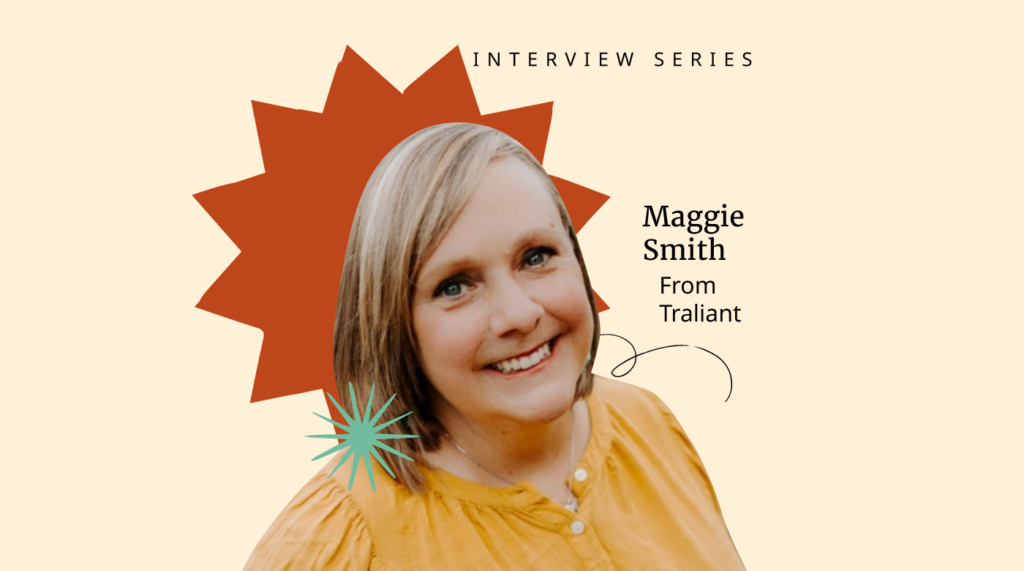We’re passionate about the world of work, and how we can make it better. To help satisfy our curiosity, we’ve launched an interview series where we pick the brains of experienced leaders, business owners, managers, and individual contributors to get their thoughts on how we can collectively build better workplaces.
We’d love to get to know you a bit better, tell us a bit about your backstory.
I unknowingly stumbled my way into Human Resources back in 1998. I had accepted an offer for a full-time office manager role while I was still attending college as a non-traditional student at Northeastern University in Boston. One day, a benefits enrollment form arrived in the office via fax (those were the days!) and when I asked the CEO who received benefits enrollment, she replied, “You do!” Thankfully, I was in school, so I began to take human resources courses for my electives and to network. I leveraged our insurance broker and providers to learn a lot about benefits administration. The scope of my office manager role seemed to expand to encompass more HR duties. Eventually, I left the organization so that I could join an HR team and learn from colleagues.
If we were to ask a friend to describe your personality to us, what would they say?
They would say that I don’t take myself too seriously – I like to laugh and have a good time and encourage everyone to find a company to work for where they can do that. They would also say I am like a dog with a bone – in a good way! More like, relentless in the pursuit of goals.
Thinking back to your career journey, what’s an interesting story that stands out?
My first “job” upon graduation from high school was an enlistment of 4 years’ active duty in the U.S. Army working as a flight operation specialist in Army Aviation. While this doesn’t directly relate to my current career in human resources, it exposed me to many people from all different backgrounds – the ultimate DEIB (diversity, equity, inclusion and belonging) experience. This served me well in my HR career in terms of interacting with others and helping me develop the grit and determination to build scalable systems for organizations and their employees.
What’s the most impactful lesson you've learned over your career thus far?
I have learned how not to treat people. Unfortunately, I’ve witnessed poor culture as a result of leaders not leading with empathy or people who will do anything to get ahead. I read “No Rules Rules: Netflix and the Culture of Reinvention” and agree with their ‘no brilliant jerks’ rule. This rule is that Netflix won’t hire brilliant jerks – you shouldn’t either.
It’s almost impossible to build a great team when you have brilliant jerks on the team.
Although it may be tempting to retain them due to their skill level and output, don’t. They will be a detriment to your culture and your team’s morale.
Thanks for giving us some insight into who you are! Let’s jump into things. When you hear the phrase “build a better world of work,” what comes to mind?
That we, employers and human resources professionals, overall, have a lot of work to do. I feel we need to build a better world of work by implementing what Stanford economist Nick Bloom refers to as ‘being nice to people policies.’ Bloom is referring to pro-work-life-integration policies such as maternity leave, job sharing, part-time work, work from home, etc. I would add encouraging employers to give their employees flexibility to the extent that the employees’ jobs permit.
We have these outdated constructs where we require people to work between the hours of 9 am to 5 pm and within four walls. Why?
A ‘being nice to people’ policy would better support the work-life integration for employees. As long as people get their work done on time and do a good job, why do we care where or when they work, as long as they are supporting their internal and external stakeholders.
For you, what’s the main blocker you see as standing in the way of building a better world of work?
Antiquated thinking is a significant blocker to building a better world of work. Innovation is going to be what moves us all forward. Employers need to trust their employees and treat them like adults – empower workers with flexibility.
What’s one thing within our control that we can practically do to build a better world of work today? And, how do you recommend going about it?

One good and easy way is through surveys. Then circle back with your employees. Let them know what you learned, what’s possible, what’s not possible (and why). Manage expectations before deploying the survey, tell employees you value their opinion and want to hear from them on what you can do to build a better world of work today. Let them know that it’s unlikely you will be able to take action on everything, but you want to know what’s important to them and you will act to the extent possible.
Closing the loop is key – if you don’t, people will stop sharing information with you.
Can you share one thing you’ve experienced, seen, or read about that is leading us towards a better world of work?
It’s a very interesting time, post-pandemic. Employees are sharing their opinions and it’s getting attention. For example, I just read an article about employees at a global tech giant who launched a petition to protest the company’s mandate to return to the office three days per week after Labor Day. This would be the end of two years’ of work-from-home for the employees. I am hopeful that employers think outside of the four office walls and the 9-to-5 schedule and get creative in a way that supports the needs of the business. as well as the needs of their employees.
I’m curious, thinking about building a better world of work, is there a company and/or leader who stands out to you as someone we should follow? If so, what are they up to?
I say, look towards the leaders who have the courage to try something new. That’s how we build a better world of work.
How can our readers follow your work?
Look for me on LinkedIn - happy to connect!
Thank you for adding your voice to People Managing People’s interview series on How to Build a Better World of Work!
Add Your Voice To The Conversation
Join our interview series and share your ideas for how we can build a better world of work.

